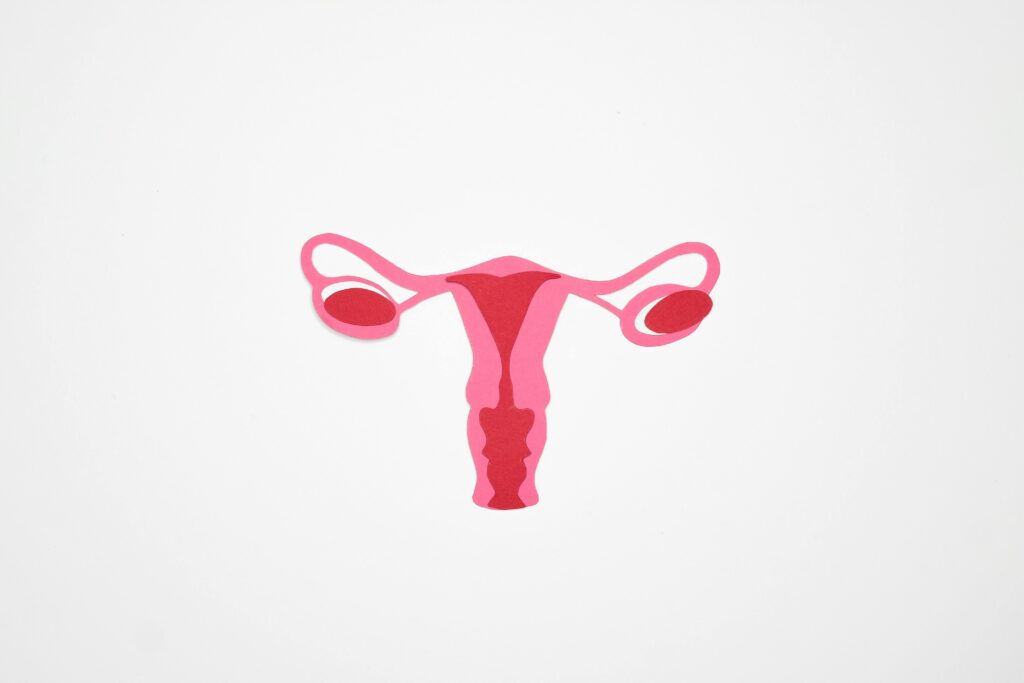How Your Gut Health Affects PMS and Mood Swings

If you’ve ever felt like your emotions take the wheel during certain points in your cycle, you’re not imagining it—and you’re certainly not alone. Premenstrual syndrome (PMS) and mood swings are deeply real experiences, often brushing up against daily life in ways that feel unpredictable and overwhelming. What you may not know is that your gut health has a lot more to do with those hormonal and emotional shifts than it gets credit for.
We tend to think of the gut as just the digestive hub of the body, but it’s far more connected to the brain, hormones, and emotional well-being than many realize. In fact, the gut isn’t just where food is broken down; it’s where mood is moderated, hormones are metabolized, and immune responses are managed. So when your microbiome is out of balance, your mood often is too.
Let’s explore how your gut might be at the root of your PMS struggles—and what you can do about it.

The Gut-Hormone Connection: More Than Just Digestion
At the center of this conversation is the gut microbiome—a thriving (or sometimes struggling) ecosystem of bacteria, yeasts, and microbes living inside your digestive tract. These organisms don’t just help with food; they influence how estrogen is processed and cleared from the body. When everything’s in balance, this system supports smooth hormonal transitions. But when there’s dysbiosis, or an imbalance of gut bacteria, things can get rocky.
Here’s how: estrogen is metabolized in the liver and then excreted through the digestive system. Certain bacteria in the gut, collectively known as the estrobolome, regulate how much estrogen gets reabsorbed into the bloodstream versus eliminated. If the wrong types of bacteria dominate, excess estrogen can be reabsorbed, contributing to mood swings, irritability, breast tenderness, and other common PMS symptoms.
Gut inflammation can amplify this problem. A gut that’s constantly irritated—whether by food sensitivities, processed ingredients, stress, or lack of sleep—can trigger immune reactions that throw hormones even further out of sync. That inflammation affects neurotransmitter production as well, including serotonin and GABA, two key players in mood stability.
The Gut-Brain Axis: Where Emotions Begin
Serotonin, sometimes called the “feel-good” chemical, is often thought of as a brain-based neurotransmitter. But the truth? Around 90% of serotonin is produced in the gut. So, if your microbiome isn’t functioning optimally, your ability to regulate mood from the inside out takes a hit.
The vagus nerve—your body’s longest cranial nerve—connects the gut and the brain, allowing them to send signals back and forth throughout the day. When the gut is inflamed or out of balance, those signals can get distorted. You might feel anxious without a clear reason or irritable at things that wouldn’t usually phase you. Many women describe this emotional state as “on edge” or “just not myself.” Sound familiar?
These aren’t just random mood changes. They’re part of a larger story your body is trying to tell you.

PMS, Bloating, and Gut Motility
Alongside mood shifts, many women experience digestive changes during their cycle—bloating, constipation, or a general sense of digestive discomfort. This isn’t a coincidence. Hormonal fluctuations during the luteal phase can slow down gut motility, causing food to linger in the digestive tract longer, which can increase gas and bloating. Add a disrupted microbiome to the mix, and the digestive system has to work overtime just to keep things moving.
When digestion slows down, your whole system can feel off. And that physical discomfort often feeds into emotional discomfort, creating a cycle that can feel difficult to break.
How to Support the Gut During PMS and Beyond
So, how do you begin to support your gut to ease PMS symptoms and stabilize your mood? It starts with the basics: real food, fiber, hydration, and rest. But sometimes, foundational support isn’t enough. If your microbiome has been struggling for a while—due to antibiotics, stress, diet, or hormonal birth control—it may need more targeted help.
That’s where probiotics come in. Not just any probiotic, but those that are designed with the female microbiome in mind. When chosen carefully, probiotics for women’s gut health can support estrogen metabolism, reduce gut inflammation, and improve digestive regularity—all of which contribute to a more stable emotional and hormonal state.
One example worth considering is Bioma’s Probiotics for Women, which are formulated to support not just digestive balance, but vaginal and hormonal health as well. These multi-strain capsules are designed with a woman’s full-body health in mind—addressing bloating, immunity, and even mood from a microbiome-centered perspective.

What Balance Feels Like
Supporting your gut won’t erase PMS completely—hormones will always ebb and flow. But a balanced microbiome can mean the difference between “I feel off but okay” and “I feel like I’m unraveling.” That’s a huge difference.
When your gut is supported, digestion becomes more predictable. Mood swings are less intense. Sleep becomes deeper. Cravings are easier to manage. It’s not about perfection—it’s about helping your body feel more stable, more grounded, and more like you—even when hormones shift.

Rethinking PMS: Your Gut Might Be at the Center of It All
So often, we try to manage PMS and mood swings from the outside—changing schedules, pushing through, and reaching for pain relievers or sugar. But your body might be asking for something different. It might be asking for gut repair, microbial diversity, and a little internal calm.
Your gut isn’t just where food is digested—it’s where mood regulation begins, hormones are processed, and immune signaling is managed. The growing body of research confirms that the gut microbiome plays a critical role in regulating the estrobolome, the collection of gut bacteria that influences estrogen metabolism. Disruption in this microbial system has been linked to heightened estrogen reabsorption, inflammation, and greater PMS symptom severity..
At the same time, gut-brain communication has been shown to impact serotonin production, with over 90% of the body’s serotonin being produced in the gut. Changes in microbiota composition have been connected to mood disturbances, anxiety, and emotional instability—all of which often intensify during the luteal phase of the menstrual cycle (Clarke et al., 2013).
If you’ve been feeling off, irritated, or just tired of the monthly rollercoaster, it may be time to look inward. And your microbiome might be the most powerful place to start.
Related articles






